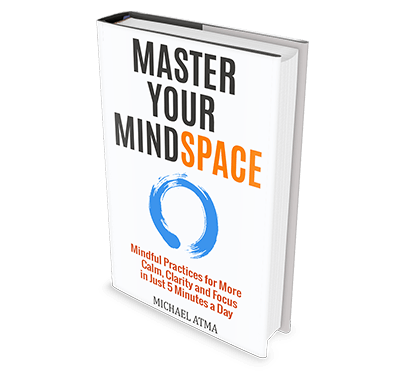
This is an age old question that you could ask hundreds of people and get a different answer from each of them.
Firstly, can money buy happiness? Well, that depends. It depends on whether what you spend your money on brings more happiness to your life or not. For example, a shopaholic who spends all their money on ‘things’ will get a momentary spike in ‘happy hormones’ when they buy something but it certainly won’t last.
This type of happiness is fleeting and simply fills a need for emotional nurturing, which could be gained in countless other ways.
What is ‘Enough’ Money?
Again, this will vary from person to person but for the moment lets say that ‘enough’ money is when the money you make is more than the money you spend.
It certainly doesn’t mean living pay-check to pay-check and just scraping by while your credit cards are maxed to the limit and bills just keep mounting up. That to me is financial suicide which all too many people get stuck in the habit of.
Sometimes, having enough money to take care of all these things and not have to worry about bills, mortgages and everyday living expenses may not necessarily make you happy, but will ensure you are less financially stressed and have more peace of mind.
Above all though, having enough money to never have to worry about it again will give you a feeling of freedom in the world that very few people get to know. The freedom to be, do and have whatever your heart desires.
Money Doesn’t Grow On Trees
This is what my parents taught me about money as it was their mantra whenever I wanted something. Needless to say, there are about as many different beliefs about money as there are people on the planet. Some believe it is the root of all evil, while others believe that lack of it is the reason they suffer.
Money is neither good, nor bad – it is just a form of energy exchange. We exchange money for goods and services. What we choose to do with our money is what determines whether it will bring more joy to our lives or create more suffering.
The formula is simple, if you want more money in your life then you need to have a powerful set of beliefs to support it. Then, as you take actions to reinforce your beliefs of greater prosperity, your money tree will start to bear fruit.
How Does Self Sabotage Work
What’s important to understand is that the amount of money that flows into and out of your life is primarily determined not so much by your physical efforts, but by invisible scripts (like “I hate money”) that sabotage any attempts to have more.
We all have scripts running in our head. Some of them are helpful, while others aren’t. These scripts come from what we learned about ourselves and the world around us as children, which conditioned us to think and behave in set ways about money as we matured.
These scripts, or belief systems as they are also known, are held in place by emotion. In other words, the stronger an emotion we have around something, the stronger the belief. That’s why the topics of politics, religion or sex can always be guaranteed to start fires because our beliefs around these things are typically very powerful.
Self sabotage comes from the scripts in your head that hold you back from living your full potential. This is the part of you that comes into play whenever you try and better your life. It’s the part that when you try to lose weight, quit smoking or give-up something that is not good for you sabotages your attempts at lasting change.
The same thing happens when it comes to your money beliefs. If you have a script in your head like, “I don’t deserve to be rich”, or, “I never have enough money”, then this is where you will stay stuck at until you break free from these limiting beliefs and the emotion that holds them in place.
How To Break Through Limiting Beliefs
Willpower and desire are not enough to help break through the scripts that limit your money, happiness or any area of your life. It needs to be a process. By that I mean you need to follow a step-by-step road map to financial success that has been successfully used by others to overcome your limiting beliefs.
The same can be said for any area of your life that you want to eliminate self sabotage from. Follow the steps that others have taken to successfully lose weight, stop smoking or get rich and you’ll be able to do the same. What you do need to be mindful of though is that you choose the right process for you.
Once you get clear about what your financial goal is, then you can find the perfect process to help achieve your goal. If you don’t have a financial goal in mind, then there’s nothing to start as everything we achieve
Building Better Money Habits
There are three steps to turn the art of making money into a habit that you can rely on for the rest of your life. They are:
Step 1 – Make more money than you spend.
While this may sound ridiculously obvious it may not be a surprise that most people are in debt up to their eyeballs and have no back-up plan should their income suddenly stop. If you simply focus on increasing your income, while reducing your expenses, then you are on track for step 1.
This may mean asking for a raise at work, finding a job that pays better money, or starting-up your own business where your income level’s do not need to be capped.
If you’re so inclined, then setting up a budget to live by week-by-week or month-by-month is an awesome idea. Budget’s aren’t that popular with many people,probably because they don’t want to feel like they have to go without something if the budget doesn’t allow it.
What i can say about budgets though is that they are a a great habit to get into so you can see exactly where your money is being spent and how it needs to be distributed. Then, when you want something that is outside of your budget you need to figure out a way to afford it.
This is a powerful way to take financial responsibility and develop a powerful money habit for life.
Step 2 – Save a percentage of every dollar you make.
This is incredibly powerful when done correctly. I remember when I first started doing this I made sure to always pay myself 10% of every dollar I made. I didn’t even put this money in the bank. Instead I put it in an envelope so I could count it once a week. Just by doing this I managed to save $25,000 in 12 months.
The key to the success of a savings plan is to never touch it, no matter how tough things get. This is more an exercise in self discipline than anything else. Saving 10% of every dollar you make may not be doable for you so just pick a percentage that works for you and start there.
I would sometimes put aside more than 10% of my earnings depending upon if I could afford to or not that week. So set a minimum percentage you are okay to start with and then be flexible in putting aside more if you can. This leads us to the next money habit.
The key to making this work is to pay yourself first before taking care of your bills and expenses.
Step 3 – Invest your saving’s
Real wealth happens when you have good cash flow PLUS assets that eventually produce income for you. It is said that cash flow is king, and I tend to agree. I have many friends who are asset rich and cash flow poor and still they struggle to live a good lifestyle.
Whereas, if your cash flow always exceeds your expenses then you are in a good position, even without assets, as long as the cash flow continues of course.
Investing is a skill that anyone can develop. In fact, it is essential to become a good investor if you want to become financially free. To leave it in the hands of other’s could be potential financial suicide,
My recommendation would be to seek out a financial planner who is a successful investor themselves and have a meeting with them to determine a strategy you are happy with. I personally love property and business. I invest in both of these and they have not let me down yet.
Regardless of what you decide on make sure you take the time to learn about the different areas of investing, how they work and get especially knowledgeable about the ones you are keen on. In the investing world, knowledge is power. The more knowledge you have about how it works and what to do, the smarter your financial decisions will be.
It’s never a good idea to put your financial destiny into the hands of people who ‘say’ they can help you. Just ask the millions of people who have been screwed over by fraudulent investors who are all too happy to take your life savings and run with them.
That’s why part of becoming a successful investor you should be reading books on investing, going to seminars, and developing your own skills in your area)s) of interest.
Making Money Is Fun
Making money should be fun. If you look at it more like a game that you can easily get better at over time, then your thinking in the right direction. I’ve always used the affirmation, “I love money, money loves me and I am a money magnet”, to help build a positive script in my mind around money.
If you follow the three steps above you will rapidly start to develop a powerful set of money habits that will help you to break free from limiting scripts and habits you may have adopted around money. Most of all, try not to take money too seriously as after all it’s really just a piece of paper with ink on it or some numbers on your computer screen.
If you look at making money as something fun to master and have an attitude of abundance in all that you think and do, then you’ll soon start to see more of it in your life to enjoy.


